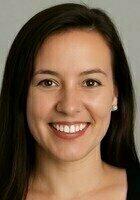Connect with hundreds of tutors like Donald
Who needs tutoring?
FEATURED BY
TUTORS FROM
- YaleUniversity
- PrincetonUniversity
- StanfordUniversity
- CornellUniversity

Donald
About Me
I earned my bachelor's degree in chemical engineering, then worked in the computer database software industry as a pre-sales engineer, consultant, trainer, and quality assurance engineer. Consulting in several industries gave me broad exposure to real-world problems and a work ethic that may serve as a role model. I learned to listen to problems and come up with creative and practical solutions. As a trainer and pre-sales engineer, I co-wrote a tutorial, created class materials, and made many technical presentations about "leading edge" software, and so became skilled at explaining complex concepts. My work in QA reinforced my obsession with quality and gave me a good eye for seeing and diagnosing errors, which applies to student errors and misunderstandings. I have tutored on and off since my college days, in math, science and ESL. I approach tutoring with a positive attitude, a good ear for listening, patience, respect, and humor. I have a bias toward deep understanding rather than rote memorization.
Education & Certifications
Test Scores
Q&A with Donald
Connect with a tutor like Donald
Connect with a tutor like Donald
Tutors with Similar Experience



